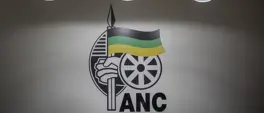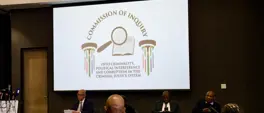What it takes to be at the coalface of a suicide crisis helpline
Paula Luckhoff
10 September 2025 | 16:17On World Suicide Prevention Day, 702's John Perlman is joined by Lebohang Mokoena, volunteer training coordinator at the South African Depression and Anxiety Group.
- John Perlman
- 702 Drive with John Perlman
- South African Depression and Anxiety Group (SADAG)
- Suicide
- mental health

Helpline, call centre. Pexels/MART PRODUCTION
Suicide is sometimes referred to as a worldwide epidemic, as the stresses of modern life exhaust people's emotional resources.
In South Africa there are a number of organisations that have set up helplines so that people in distress can call in and talk to trained counsellors about the particular issue they're facing.
On Wednesday, World Suicide Prevention Day, the South African Depression and Anxiety Group (SADAG) worked to raise awareness around mental health.
Under the theme 'Hope Starts with Talking', SADAG is urging the public to talk about those difficult topics like depression and suicide.
RELATED: SADAG urges South Africans to talk about depression & suicide
The mental health support group says that in South Africa, there are about 14,000 deaths from suicide every year.
John Perlman asks volunteer training coordinator Lebohang Mokoena what qualities they need in potentialcounsellors, and how the counsellors themselves deal with the stresses of the job.
They do look for counsellors who will be there to hold a safe space for people who reach out for help, Mokoena says.
"We need counsellors to tell callers 'listen, it's ok to not be ok, and as a counsellor I'm here to help you."
Lebohang Mokoena, Volunteer Training Coordinator - SADAG
"Of course then we look for counsellors who are empathetic, who want to show that level of support to people reaching out and who are non-judgmental, to be able to hold that safe space. "
Lebohang Mokoena, Volunteer Training Coordinator - SADAG
The counsellors are also just human - what happens if they are triggered by a caller whose experience possibly takes them back to a bad memory or an issue they haven't dealt with themselves?
Mokoena says SADAG makessure to prioritise the counsellors' wellbeing, and if they feel that they're not in a position to assist a caller further, they know to alert a supervisor in the call centre to take over.
"There is that human element in us as counsellors... and in such an instance another supervisor will try and assist the particular caller, but we'll also take the counsellor into a private space and try to understand what is going on, to provide THEM with that safe space to express their concerns and what it is that could have contribute to make them feel triggered."
Lebohang Mokoena, Volunteer Training Coordinator - SADAG
There is also a possible feeling of failure to contend with, when a counsellor, despite having tried their best, feels they did not do enough to help someone.
"Our counsellors need to understand that we cannot control everything. You cannot force the person to get the help that they need; it has to come from them. It is very important to us that we equip our counsellors with all the necessary resources and procedures in place so that they make sure that they assist the person to their fullest potential."
Lebohang Mokoena, Volunteer Training Coordinator - SADAG
If you, or someone you know needs support, there are a number of ways to contact the Cipla/SADAG 24-hour mental health helpline:
PHONE
- Suicide Crisis Helpline: 0800 567 567
- Cipla Mental Health Helpline: 0800 456 789
- Substance Abuse Helpline: 0800 12 13 14
Cipla Chatline: 076 882 2775
SMS
31393
Scroll up to the audio player to listen to the full conversation
Get the whole picture 💡
Take a look at the topic timeline for all related articles.
















